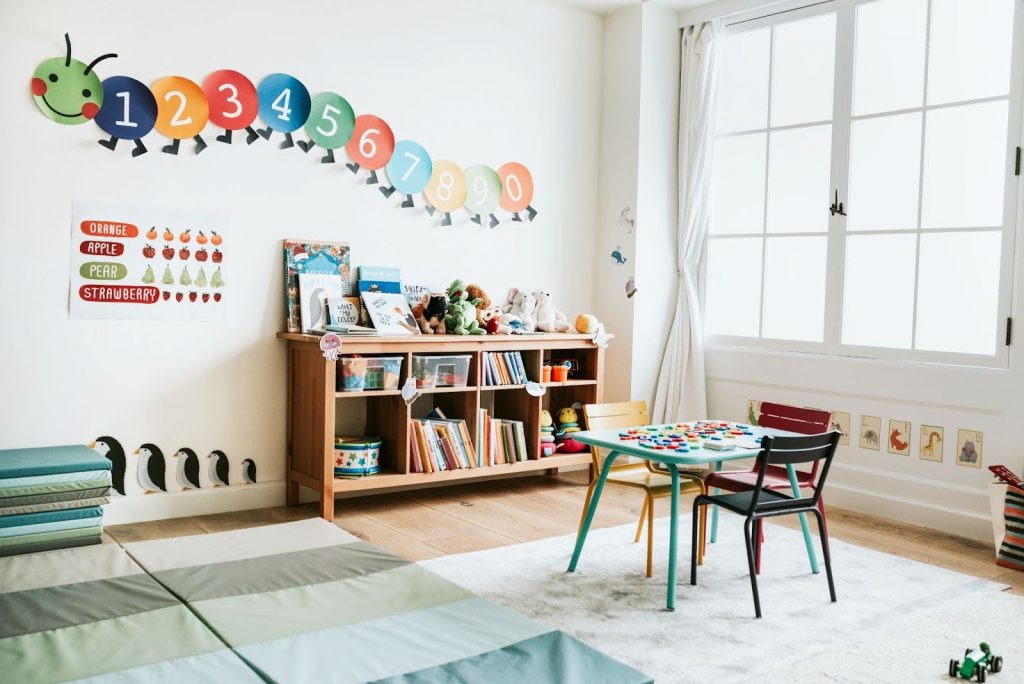Got an interview invite for a Kita job? Congratulations! You must’ve really impressed them with the application. But what’s next?
Even if you are just at the beginning of your Kita job hunt journey, sooner or later you will get an interview with a recruiter. You can memorize all the most common job interview questions, but what questions in a job interview can you ask at the end of the meeting so that does not end on an awkward note?
In this article, we will reveal the interview process at Kita jobs and what to ask in the interview to avoid disappointment in the role and to impress the recruiter.
Stages of the Interview for Kitas

Starting with the basics, Kita’s interviewing process follows a common negotiation structure like any other job. Overall, you can expect the interview in a Kita process to last anywhere from 20 to 45 minutes, depending on the role.
Those stages include:
Introduction (5–10 min)
This is the “icebreaker” to set the mood and get to know each other. Sometimes this is also the stage where the recruiter has to promote their Kita and introduce you to the work culture.
Discussing background and qualifications (10–15 min)
This is where you discuss your education, experience, achievements, and relevant skills for the specific Kita position.
Job-specific questions (15–20 min)
This part includes questions from the interviewer about the specific responsibilities and challenges of the role. They might also ask specific scenario-based questions to assess your problem-solving, decision-making, and conflict-resolution skills in a childcare setting.
Salary negotiations (5–10 min)
Confirmation of salary expectations, bonuses, and often career development programs.
Questions to the recruiter and closing (5–10 min)
This is the last, yet, the most important part of the interview where you can prove yourself worthy of the role and make sure that a certain Kita will become your dream job.
Preparation for a Job Interview

To avoid wasting your time and the time of your recruiter, you need to prepare for the interview properly. But it’s not as hard as it sounds if you’re confident in your skills!
Different Roles — Different Interview Approach
Working in a Kita is not only about caregivers. It is a rather large structure with many roles. Cooks, cleaners, speech therapists, storytellers, and even composers are all important!
But for each role, recruiters will look at different skills. Thus, educators should prepare for questions about hands-on care, engaging activities, and nurturing relationships with children. As for assistants, teamwork and adaptability are key, so they should expect questions on supporting educators, maintaining a nurturing environment, and adapting to different needs.
With that being said, you should read carefully your job description and study Kita carefully before thinking about your questions for the interview.
Do Your Kita Research
Think of it like a little homework. Ideas for questions will arise on their own if you decide to dive deeper into the history and culture of your potential new workplace.
We have prepared a short checklist of what you should study about a Kita before the interview:
- ✓ Official website
- ✓ Social media
- ✓ Google Reviews
- ✓ Look for mentions in articles and news
- ✓ Look for any career growth programs or bonus offers
- ✓ Ask around about this Kita from friends, previous workers, or acquaintances who use the said Kita (optional)
Prepare Your Answers in Advance

You still have to get to see the moment when you have the opportunity to ask something yourself, as this part is usually the concluding one in the interviewing process.
At first, you will have to go through several levels of questions from your recruiter, which can be standard questions like these:
- Why did you apply to us?
- What are your strengths and weaknesses?
- What do you like about working with children?
But they can ask more tricky questions to understand your true nature and how you behave in stressful situations, this goes even for an internship role. For example:
- How would you handle a situation where a parent disagrees with your approach to disciplining their child?
- A parent expresses concerns about their child’s progress in a specific area. How would you communicate with them and collaborate to support the child’s development?
- What do you think are the biggest challenges facing modern childcare, and how would you contribute to overcoming them?
- What’s the most embarrassing mistake you’ve made in your career as a kindergarten teacher, and what did you learn from it?
Right now, after reading this, step back for a couple of minutes, think about it, and write down or rehearse your answers. It’s not so scary, is it?
Of course, there may be other questions in a job interview, but even so, you are even more prepared now that you have practiced. The main thing is to remain calm, so you show your professionalism.
What To Ask the Hiring Manager in the Interview?

At the end of the interview, you will have the opportunity to ask your questions to the HR. This way, they want to see your interest in the company, what your values are, and how well you have prepared for the interview.
Since the Q&A is at the end of the interview, you may feel rushed, but don’t let that fool you. Prepare 2–3 questions that interest you the most beforehand.
Of course, your questions may differ based on what you have learned about your workplace. Nevertheless, we have prepared a small list of possible questions, so keep this page for yourself so you don’t lose it:
- How does this Kita support its educators in professional development?
- What are some of the biggest challenges you’ve faced in this Kita recently, and how were they addressed?
- Can you describe the team dynamic within this Kita?
- Can you describe the typical workload for someone in this role?
- How does this Kita handle dietary restrictions and allergies among the children?
- What are the KPIsKey performance indicators used to measure success in this role?
These are just examples of questions for a toddler teacher role, but you can feel free to add any questions of your own that you think will give you a better understanding of the job prospect.
Should You Discuss Salary?

The topic of salary expectations is the most difficult to discuss during an interview. Although work ethics towards direct discussion of salary is usually discouraged, this does not mean that it should not be discussed at all. You need to stand your ground because we’re talking about a childcare specialist job.
Salary expectations depend on the professions with children, and your knowledge of the market will show the recruiter that you know your worth, even for an internship at kindergarten.
We have analyzed several roles based on open resources such as Lohnrechner, Entsendung, Kununu, and summarized the approximate salary:
- Kita teacher salary typically ranges between CHF 3,800 and CHF 5,200 per month (gross), with higher salaries for experienced professionals.
- Managers can expect salaries in the range of CHF 5,400 to CHF 7,400 per month.
- Support staff: Salaries for roles like Kita-Assistant or Housekeeper might be lower, starting around CHF 3,200 to CHF 4,200 per month.
- Specialists: Speech therapists, movement specialists, and other professionals with specialized qualifications may earn higher salaries, potentially exceeding CHF 8,000 per month.
In most cases, employers are required to indicate salary expectations and the scope of work on job search sites. Nevertheless, you can monitor the market situation yourself with the help of the wage calculators we mentioned above, or similar to them.
Here are the principles to follow during toddler teacher salary negotiations:
- Remain polite and respectful throughout the negotiation;
- Base your expectations on research using resources like the ones mentioned earlier;
- If offering a range, anchor your higher point slightly above your target and be willing to compromise within reason;
- Discuss benefits that come with your role, such as paid leaves, health insurance, or childcare discounts;
- Appreciate their offer even if it falls short, express thanks for the opportunity and your continued interest.
Summary
The path to a coveted Kita position can be difficult. But don’t worry, we’ve got some great tips for you to make sure you’re fully prepared for your interview, leave a great impression, and ask the right questions at the end of the meeting.
We hope that with the help of our tips described in this article, you will get the job of your dreams in the best Kita in no time. Good luck 🍀
FAQ
💬 What Should I Say at an Interview?
Introduce yourself confidently, highlight experience and skills (lifetime experiences count as well if they’re relevant!), discuss achievements, express enthusiasm for the role, and align your qualifications with the job requirements.
📚 What Are the Best Kita Interview Questions and Answers?
Avoid generic questions easily found online, interviewers can tell the difference. Carefully research your role and Kita, and ask about challenges, team culture, professional development, and Kita’s philosophy.
💪 What Are Some Examples of Strengths and Weaknesses?
While the strengths are not so challenging to list, the weaknesses are more interesting as they don’t mean literal weaknesses. It’s about how you approach your growth. Think about your zones of improvement, and use this formula as an example: “I’ve been struggling with ABC, but I’m trying to do XYZ to achieve it.”
📋 How Do I Prepare for an Interview at a Kita?
Job interviews are stressful, but it’s manageable. Research the Kita, practice common questions, prepare insightful questions for the HR, dress professionally, arrive early, and you’re all set!
